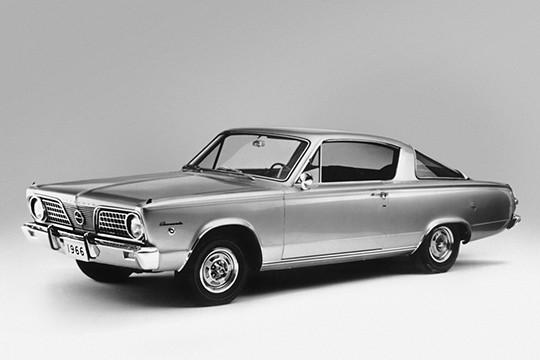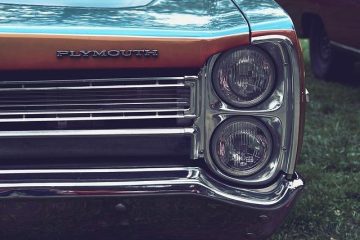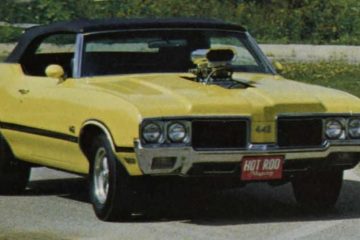Table of Contents
- Exploring the Legacy of Plymouth Car Audio Systems
- Top Upgrades for Enhanced Acoustic Performance in Plymouth Models
- A Comprehensive Guide to Choosing the Right Plymouth Speakers
- Integration Tips for Modern Technology in Classic Plymouth Cars
- Maintenance and Care for Long-Lasting Car Audio Excellence
- Q&A
- In Retrospect
Exploring the Legacy of Plymouth Car Audio Systems
Plymouth car audio systems have established a reputation for delivering exceptional sound quality and performance, making them a beloved choice among automotive enthusiasts. Originating as part of the Plymouth brand, these audio systems evolved through various generations of vehicles, showcasing cutting-edge technology and innovative features. From the classic models of the 1960s to the modern iterations, Plymouth audio systems reflect a commitment to enhancing the in-car listening experience.
One of the standout features of Plymouth car audio systems is their ability to balance powerful bass with clear highs, providing a rich audio experience. Owners appreciate the inclusion of premium components that enhance listening quality, such as:
- High-efficiency amplifiers
- Custom-designed speakers
- Advanced sound processing technology
This dedication to sound quality has made Plymouth a preferred choice for many who seek not just a means of transportation but also an immersive audio experience. With models integrating seamlessly into the vehicle’s interior, the aesthetic design also plays a crucial role. For example, modern Plymouth audio systems often feature:
| Model | Year | Audio Features |
|---|---|---|
| Plymouth Horizon | 1980 | AM/FM radio, cassette player |
| Plymouth Voyager | 1990 | SiriusXM compatibility, 6-disc CD changer |
| Plymouth Prowler | 1997 | Premium sound system, subwoofer |
By blending technological heritage with modern demands, Plymouth car audio systems have left an indelible mark on the automotive audio landscape. As they continue to evolve, enthusiasts can expect the next generation of Plymouth audio systems to explore more integrated multimedia solutions, further carving out their legacy in car audio history.


Top Upgrades for Enhanced Acoustic Performance in Plymouth Models
For Plymouth owners looking to take their car audio experience to the next level, several upgrades can significantly improve acoustic performance. Sound deadening materials are among the first enhancements to consider. By applying sound dampening mats to critical areas like the doors, trunk, and wheel wells, you can dramatically reduce outside noise, allowing for clearer sound fidelity and a more immersive listening experience. These materials block vibrations and create a quieter cabin that’s perfect for enjoying your favorite tracks without distractions.
Investing in a premium head unit can also make a noticeable difference in audio quality. Modern head units offer advanced features such as high-resolution audio playback, customizable equalizer settings, and even integration with smartphones for seamless streaming. Look for models that support high-quality digital audio formats and come equipped with built-in amplifiers. This upgrade can enhance sound clarity and power, allowing the speakers to perform at their best.
upgrading your speaker system is essential for transforming your Plymouth’s audio experience. Many factory-installed speakers lack the range and depth that audiophiles crave. Consider installing component speakers that provide separate woofers and tweeters for improved sound staging and clarity. Additionally, installing a subwoofer can add depth to your music, giving you those bass notes that really bring a song to life. Here’s a simple comparison table to highlight popular speaker types:
| Speaker Type | Notes | Best For |
|---|---|---|
| Coaxial Speakers | All-in-one design, easy to install | General use and budget builds |
| Component Speakers | Separate components for enhanced sound | Dedicated audiophiles seeking clarity |
| Subwoofers | Specializes in low frequencies | Music with deep bass |


A Comprehensive Guide to Choosing the Right Plymouth Speakers
When selecting speakers for your Plymouth vehicle, it’s essential to consider several key factors that can significantly enhance your overall audio experience. First and foremost, sound quality is paramount. Look for components with a good frequency response range that meets your listening preferences. The clarity of highs, richness of mids, and depth of lows will create a balanced sound. Additionally, you may want to explore different speaker types—full-range speakers are versatile for various music genres, while component speakers offer superior sound quality if you’re an audiophile.Next, pay attention to the speaker size and fit. Plymouth models come with specific dimensions for speaker placements, so it’s crucial to choose sizes compatible with your vehicle. Most factory-installed systems utilize 6.5-inch speakers, but this can vary. A quick assessment of your stock speakers can help make a better-informed decision. Remember to consider the power handling capability of the speakers, which should align with your car’s audio system’s output. If you plan on upgrading to a more powerful head unit or amplifier, ensure your speakers can handle an increase in power to prevent distortion or damage.don’t overlook the significance of material quality. The materials used in the construction of the speaker cones and surrounds influence durability and performance. Look for features like polypropylene cones, which offer better moisture resistance and longevity, or rubber surrounds that provide flexibility and durability over time. Additionally, consider the brand’s warranty and reputation in the market, as these can also reflect the speaker’s long-term reliability and quality. Shop around and read reviews to gather insights about experiences from other Plymouth audio enthusiasts to make the best choice possible.

Integration Tips for Modern Technology in Classic Plymouth Cars
When it comes to modernizing the audio system in your classic Plymouth, there are several key considerations to keep in mind. First and foremost, select the right audio components that blend seamlessly with the vintage aesthetic while still delivering modern sound quality. Look for stereo systems that mimic the appearance of original radios but offer modern features like Bluetooth connectivity, USB ports, and auxiliary inputs. This way, you can enjoy your favorite music from new devices without sacrificing the classic look.
Next, consider upgrading your speakers and amplifiers. Many classic cars, including Plymouth models, have limited space for speakers, so opt for compact, high-quality units that can deliver superior sound. Additionally, a strategic placement of speakers can enhance acoustics. For example:
- Mount 6.5-inch speakers in the front doors for clear vocals.
- Install 6×9 speakers in the rear shelf for powerful bass.
- Consider subwoofers if you want to increase depth without compromising space.
wiring is crucial. Upgrade to high-quality wiring to ensure a clean power supply that minimizes noise interference. Many classic cars may have outdated wiring that can degrade sound quality. Implement a proper grounding technique and consider using cable sleeves for added protection. Here’s a simple guide to the essential wiring you might need:
| Wiring Type | Purpose | Recommended Gauge |
|---|---|---|
| Speaker Wire | Connects speakers to the head unit | 16 to 18 gauge |
| Power Wire | Supplies power to the amplifier | 8 to 10 gauge |
| Ground Wire | Provides ground for the audio system | 10 gauge |


Maintenance and Care for Long-Lasting Car Audio Excellence
To ensure your Plymouth car audio system continues to deliver high-quality sound, regular maintenance is crucial. Cleaning your audio components will help prevent dust and grime buildup that can degrade performance over time. Start by gently wiping your speakers and head units with a microfiber cloth. Avoid using any abrasive materials that could scratch surfaces. For more thorough cleaning, use isopropyl alcohol with cotton swabs to reach tight spots.
Another key aspect of upkeep is monitoring cable connections. Loose or frayed wires can lead to poor sound quality or even complete system failure. Inspect cables regularly for signs of wear, ensuring that connections are secure. If you notice any damage, replace components promptly to avoid further issues. Additionally, keep an eye on your vehicle’s battery; audio systems can drain power, so make sure it’s in good condition to prevent interruptions during your listening experience.
Lastly, consider scheduling periodic professional check-ups for your audio system. A qualified technician can perform in-depth diagnostics and performance tuning that you might not achieve on your own. Regular servicing typically includes checking the amplifier’s output, speaker alignment, and optimizing sound settings to match your preference. Here’s a quick reference table for routine audio maintenance:
| Maintenance Task | Frequency | Details |
|---|---|---|
| Clean Components | Monthly | Wipe down speakers and head unit. |
| Inspect Cables | Bi-monthly | Check for loose or frayed connections. |
| Professional Check-up | Annually | Full system diagnostics and tuning. |
Q&A
Sure! Here’s a Q&A segment focusing on the topic of “Plymouth Car Audio.” This can be a part of your article that engages readers by addressing common questions they might have.Q&A: Plymouth Car Audio
Q1: What is Plymouth car audio known for? A: Plymouth car audio systems are celebrated for their unique blend of reliability, rich sound quality, and vintage appeal. Whether you’re cruising in a classic Plymouth Barracuda or a sporty Duster, these audio setups are designed to enhance your driving experience, providing a nostalgic and enjoyable way to listen to your favorite tunes.Q2: Can I upgrade the audio system in my classic Plymouth vehicle? A: Absolutely! Upgrading the audio system in your classic Plymouth isn’t just possible; it’s a popular choice among car enthusiasts. Many aftermarket companies offer modern solutions tailored to fit the aesthetics of classic models while incorporating advanced technology, such as Bluetooth connectivity and USB ports.Q3: What should I consider when selecting an audio system for my Plymouth? A: When choosing an audio system for your Plymouth, consider factors such as compatibility with your vehicle model, your desired sound quality, and the size of the speakers. Additionally, think about whether you want a factory look or a more modern aesthetic, and don’t forget to factor in your budget.Q4: Are there specific brands that are recommended for Plymouth car audio? A: Some well-regarded brands for Plymouth car audio upgrades include Pioneer, Kenwood, and Rockford Fosgate. These brands are known for their durability and sound performance, often providing specific models that fit classic car interiors seamlessly.Q5: How can I install a new audio system in my Plymouth? A: Installing a new audio system can vary in complexity depending on your experience and the car model. Basic installs might require just a few tools and a little bit of time, while more complex systems may need professional help. It’s wise to consult guides or tutorials specific to your Plymouth model to ensure a successful installation.Q6: What are some tips for maintaining my Plymouth car audio system? A: To maintain the longevity and performance of your Plymouth car audio system, regularly check connections for corrosion, keep speakers clean and free from dust, and avoid exposing components to extreme temperatures. Additionally, periodic inspections by a professional can help identify any potential issues before they become major problems.Q7: Is it worth investing in a high-end audio system for a Plymouth? A: Investing in a high-end audio system for your Plymouth can provide significant benefits if you are an audio enthusiast. A premium system can enhance sound clarity, bass response, and overall enjoyment, making every drive a pleasurable audio experience. Plus, it adds to the overall value of the vehicle!This Q&A section aims to inform your readers while keeping the content engaging and relevant to their interests.




0 Comments